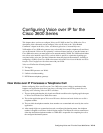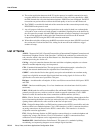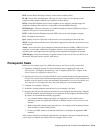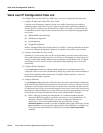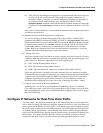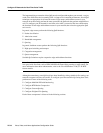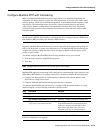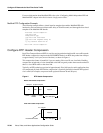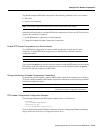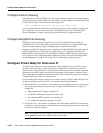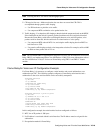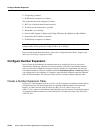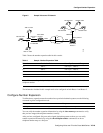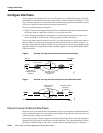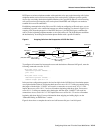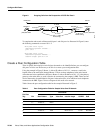
Configure RTP Header Compression
Configuring Voice over IP for the Cisco 3600 Series VC-21
You should configure RTP header compression if the following conditions exist in your network:
• Slow links
• Need to save bandwidth
Note RTP header compression should not be used on links greater than 2 Mbps.
Perform the following tasks to configure RTP header compression for Voice over IP. The first task is
required; the second task is optional.
• Enable RTP Header Compression on a Serial Interface
• Change the Number of Header Compression Connections
Enable RTP Header Compression on a Serial Interface
To use RTP header compression, you need to enable compression on both ends of a serial
connection. To enable RTP header compression, use the following command in interface
configuration mode:
If you include the passive keyword, the software compresses outgoing RTP packets only if incoming
RTP packets on the same interface are compressed. If you use the command without the passive
keyword, the software compresses all RTP traffic.
Change the Number of Header Compression Connections
By default, the software supports a total of 16 RTP header compression connections on an interface.
To specify a different number of RTP header compression connections, use the following command
in interface configuration mode:
RTP Header Compression Configuration Example
The following example enables RTP header compression for a serial interface:
interface 0
ip rtp header-compression
encapsulation ppp
ip rtp compression-connections 25
For more information about RTP header compression, see the “Configuring IP Multicast Routing”
chapter of the Network Protocols Configuration Guide, Part 1.
Command Purpose
ip rtp header-compression [passive] Enable RTP header compression.
Command Purpose
ip rtp compression connections number Specify the total number of RTP header
compression connections supported on an interface.



